Did teachers wipe out Theresa May's majority?
- Published
- comments
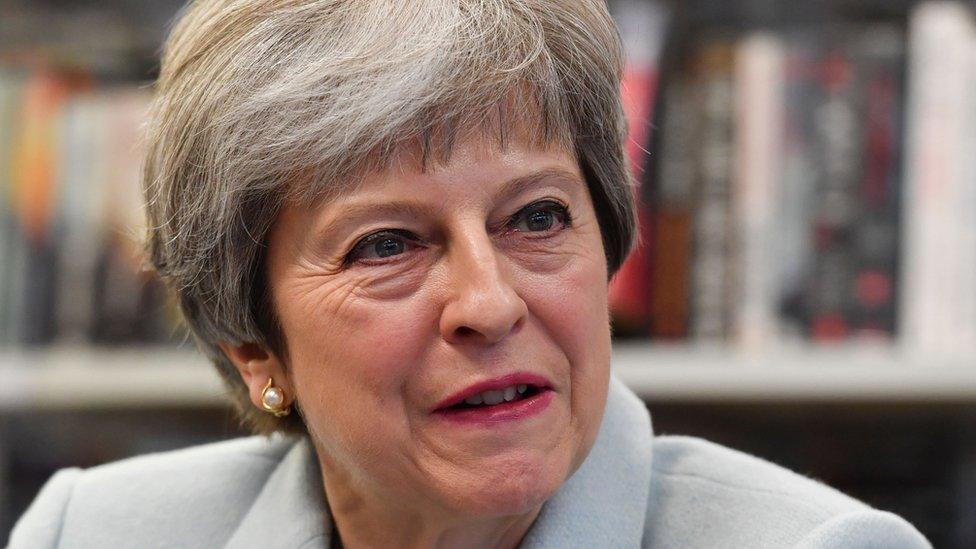
Teachers are emerging as one of the most powerful political lobbies in the UK thanks to clever use of data and social media - but some politicians are crying foul.
Kevin Courtney insists it was never his aim to wipe out Theresa May's Commons majority.
The leader of Britain's biggest teaching union this week told his members they had succeeded in making school funding the biggest issue at the 2017 general election.
And he made "no apology" for spending £326,306 of their money - more than UKIP or the Green Party - on campaigning in the year before the snap election.
Critics say the main beneficiary of this was the Labour Party, which was promising a £6bn annual boost to school budgets.
But Mr Courtney stressed the National Education Union's "proud political independence" in his speech to its annual conference.
Speaking to the BBC a few days before the conference, he said: "We were trying to create pressure in every political party to say you have to fund education properly.
"We do think it was money well spent. And it did have a significant impact on the election.
"(But) it only had impact because the issue was real - it was real outside our campaign."
The late surge in support for the Labour Party in the run up to the general election has never been fully explained, and probably never will be. No one can read the minds of thousands of voters.
Most analysis points to a rise in Labour's youth vote - although others have suggested this might have been exaggerated.
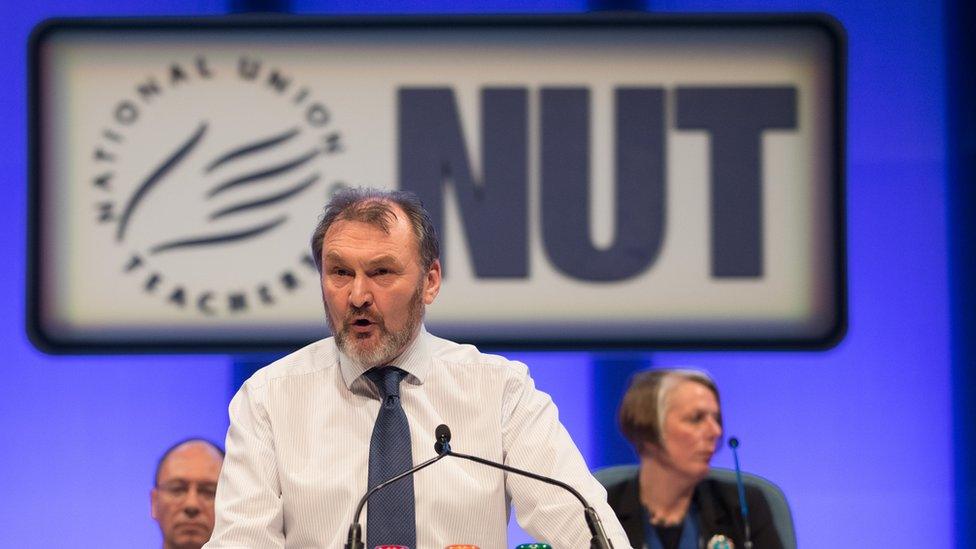
Kevin Courtney was general secretary of the NUT
The case for saying it was parents angry about school funding cuts rests largely on research by pollsters Survation., external
They found 10.4% of voters changed their mind about who to vote for due to school funding policy, the equivalent of 795,000 people switching their vote.
Education also rose rapidly up the league table of issues voters cared about as the campaign progressed, according to pollsters Ipsos Mori, external.
Small Axe, the ad agency hired by the NEU for a final push in the three weeks leading up to polling day, says its Facebook ads were viewed more than four million times.
"Seats previously considered safe Conservative holds turned up as close marginals or even swung to progressive parties," the company says on its website, external.
But Mr Courtney downplays such claims, insisting it was never part of the plan to target the Conservatives or boost "progressive parties".
What set the NUE campaign apart from the hundreds of others jostling for voters' attention last June - according to the Sheila McKechnie Foundation which gave it an award, external - was its school cuts website, also funded by the GMB and NAHT unions and created by non-profit digital agency Outlandish.
This is an interactive map, external that allows parents in England and Wales to look-up their children's school and find estimates of how it will be affected by government spending plans. During the election campaign, users could also compare the impact of the different parties' spending plans.
The site has amassed eight million page views since it was launched about six months before the election.
It uses government data on future funding for schools, which is then augmented by inflation estimates from the Institute for Fiscal Studies think tank, to show "real-terms" funding cuts per school and per pupil.
It is the sort of "big data" exercise beloved by successive governments, but turned against the government itself, using official figures to make large, abstract numbers relevant and real to parents.
It might also bring a smile to the faces of teachers battered by decades of government initiatives, league tables and "accountability" drives.
"For teachers, for whom 'accountability' has long signified a punitive and damaging experience of political bullying, it would be a sweet riposte", said Kevin Courtney in a Times Educational Supplement article a few days before the election. , external
"I don't think it's about payback," said Mr Courtney of his "sweet riposte" comment.
"I think the tools that we used made political parties more accountable for what they were saying about education funding than they had ever been before in any other election.
"Because we were able to break down what their manifesto said and turn it into real numbers for schools."
During the election the site kept a running tally of how many MPs from the three main parties had agreed to vote against cuts, which, inevitably given the party's manifesto commitments, meant good news for Labour.
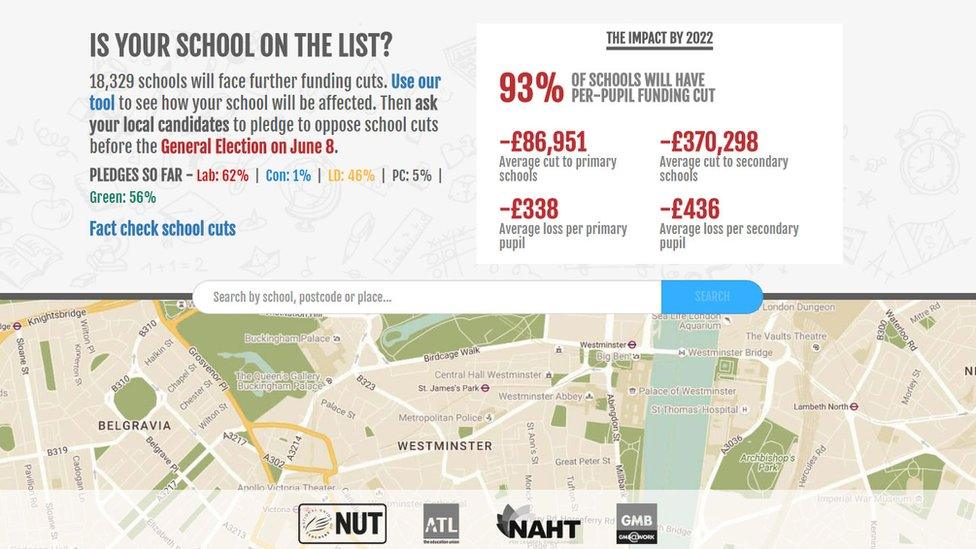
How the site looked on polling day
Mr Courtney says the union's campaign was a "big part of the reason" why then Education Secretary Justine Greening announced an extra £1.3bn for schools in England, over two years, immediately after the election.
"We can say that we spent £326,000 but we got £1.3bn for schools and we are very pleased with that," says Mr Courtney.
The NEU, which was formed last year by a merger of the NUT and Association of Teachers and Lecturers, were not the only educators trying to use their power at the school gates to influence parents.
Jules White, a head teacher at West Sussex secondary school, was one of the driving forces behind a large scale letter-writing campaign warning of cash shortages.
Parents are more likely to take notice of a letter from a head teacher - a figure that still commands a "modicum of respect" in the community - than a flyer from a politician angling for votes, argues Mr White.
"Personally, I think it was a genuine game changer. It moved education up towards the NHS in terms of profile," he says.
But, like Kevin Courtney, he insists it was a non-partisan effort and it would not have worked if there had not been a serious problem with cash shortages.
"You can not get two head teachers to agree about anything. We are all competitive. The fact that you can get us all to send the same letter shows you how bad things are."
He said the cuts campaign made school funding the top issue for voters in his area and led to Conservative MPs having their majorities dramatically reduced.
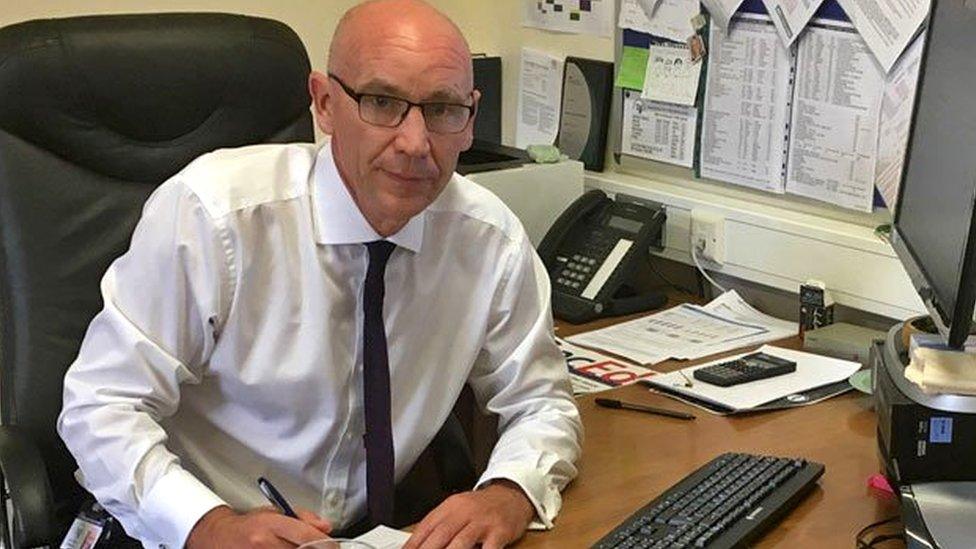
Jules White: Heads have a 'modicum of respect'
One of those MPs, Tim Loughton, who saw his majority cut by 20% in Worthing - agrees that school funding was the biggest concern for voters in his constituency come polling day.
But he argues that Conservative MPs in the area got a raw deal from the teachers' campaign because they had also been calling for more money from the government for local schools and they should "all be on the same side".
"What was really annoying at the last election is that there was a big campaign to focus on education, which is fine, funded by the teacher union, with an awful lot of misinformation included in it.
"So posters went up around the constituency and information was given to parents basically saying 'your school is going to lose x number of teachers because of this shortfall'."
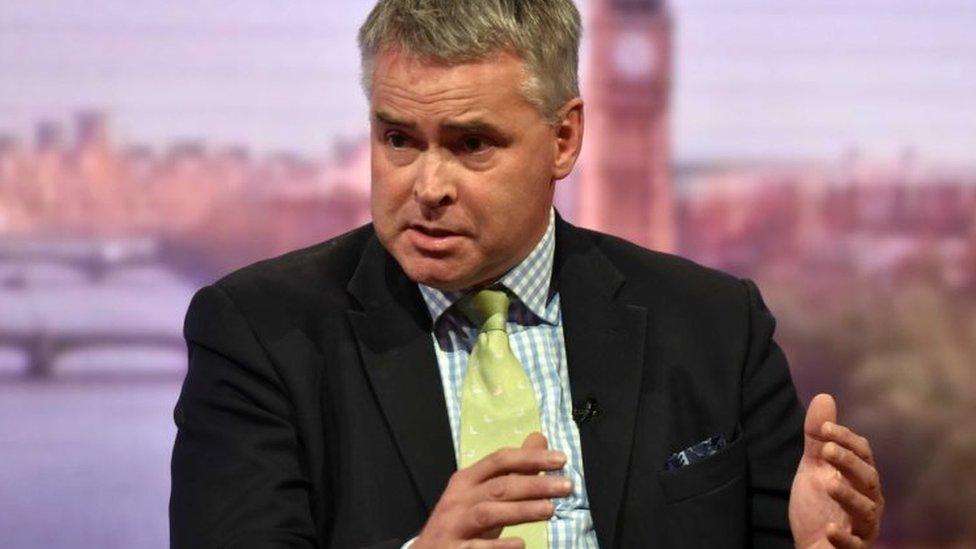
Tim Loughton: Campaign was 'irresponsible'
Mr Loughton, a former children's minister, claims that by focusing on the "worst-case scenarios" the campaign - which was seized on by his political opponents - was "frankly irresponsible and untrue because the level of job losses, which they were trying to calculate, just hasn't happened".
Kevin Courtney says the school cuts site had never said "this number of teachers will be going - we were saying this sum of money that will be cut from your child's school is the equivalent of this many teachers' salaries at your child's school".
And he says the site could be improved in the future to more accurately reflect the impact on teacher numbers.
"We don't know whether they have cut teachers or cut support staff or found some other way of making a saving.
"We don't know when teachers do go, from the statistics that we have got. If we could find ways of crowd-sourcing that data and if it was reliable from crowd sourcing that would be another huge step to get to."
But the union is not about to give up such a "powerful campaigning tool" - perhaps the most powerful it has ever had.
"We will do it again," Mr Courtney told the NEU's annual conference in Brighton this week.
"And we now have thousands more parental supporters. Politicians of all parties should be beware. Parents will not forgive education cuts."
- Published31 March 2018

- Published19 March 2018
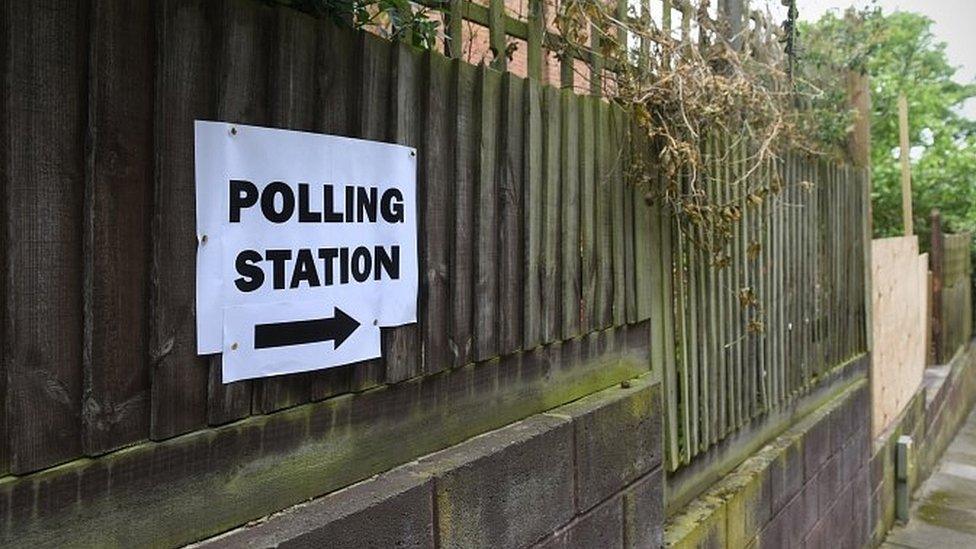
- Published28 September 2017
